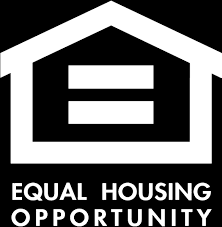Picture this: The soft hum of a lawn mower in the early morning hours, the smell of fresh coffee wafting, pride in every brushstroke on the walls painted in your chosen hues. The journey of buying a house isn’t just about real estate – it’s about discovering a haven where your heart truly belongs. It’s a commitment, an investment, and a leap of faith. But how do you know if you’re ready to take that leap?

Emotional Preparedness: More Than Just Bricks and Mortar
When discussing buying a home, the conversation inevitably drifts toward financial preparedness – credit scores, down payments, and mortgages. However, many people often overshadow one key aspect – the emotional readiness to become a homeowner. Like any significant life event, owning a home brings joy and challenges, and understanding your emotional stance can make a difference.
At the heart of homeownership lies loyalty, not to the house per se, but to the life and responsibilities that come with it. It’s akin to nurturing a long-term relationship. There will be times when the roof might leak, or the basement might flood. Would you be ready to face these issues head-on with resilience and patience? Or would a minor setback make you question your decision?
Additionally, there’s the element of dedication. A mortgage isn’t just a financial term; it’s a bond of trust that you enter with the lender, underlining your promise to pay back. It requires unwavering commitment and consistency. But it’s more than just about payments. It’s about dedicating time, energy, and love to your home, transforming it from a mere structure of bricks to a sanctuary of memories.
Being prepared also means embracing the idea of settling down, being ready to plant roots, and staying in one place for an extended time. This commitment symbolizes not just a purchase but a long-term life decision.
Owning a home is a profound emotional journey. It’s not just about possessing a property but fostering a space that aligns with your dreams and aspirations. So, before you dive headfirst into house hunting, take a moment to introspect. Are you emotionally ready to give a home the loyalty and dedication it deserves?
Financial Preparedness: Setting the Foundation for Homeownership
When setting your sights on homeownership, a solid financial foundation is paramount. It’s not just about having savings; it’s about understanding and mastering several critical financial aspects. Let’s dive deep into each one.
Credit Score: This number reflects your financial trustworthiness based on your credit history. Simply, it tells lenders how reliable you are when paying back debts. A higher score can open doors to better mortgage rates and more favorable loan terms. Before considering homeownership, checking your credit score and trying to boost it if necessary is beneficial.
Debt-to-Income Ratio: This metric indicates the portion of your monthly earnings used to settle debts. Lenders use this metric to gauge whether you can afford to take on an additional monthly mortgage payment. A lower DTI is more favorable, indicating you have a comfortable cushion to manage your expenses.
The 28/36 Rule: 28/36 Rule: This guideline recommends allocating a maximum of 28% of your pre-tax monthly earnings on housing-related costs and keeping your total debt obligations, which encompasses mortgages, credit card bills, and various loans, below 36% of your income. Staying within these parameters can provide a comfortable financial buffer and keep you from becoming “house-poor.”
Earnest Money Deposit: Consider this a good faith deposit, showcasing your genuine interest in a property. It’s a small percentage of the home’s purchase price that you put down when you make an offer. After finalizing the sale, this amount gets credited toward your down payment or closing costs.
Down Payment: This upfront payment is a percentage of your home’s total cost and is pivotal in securing your mortgage. While traditional numbers hover around 20%, various loan options might require less. Remember, the size of your down payment can influence your mortgage’s terms and interest rate.
Closing Costs: Typically, these costs amount to about 2% to 5% of the buying price and encompass expenses like appraisal charges, title inspections, and fees for initiating the loan.
Home Furnishings and Supplies: Once you’ve secured your new home, the next step is making it yours. This step often involves purchasing furniture, household supplies, and those personal touches that bring a space to life. Don’t forget the essential window coverings, which add to the aesthetics and provide much-needed privacy and energy efficiency.
Moving Expenses: While the excitement of moving into a new home is unparalleled, the costs associated with moving can add up, which includes hiring movers, renting a truck, purchasing packing materials, and other unforeseen expenses. Budgeting for these costs ensures a smooth transition to your new abode.
Emergency Fund for Home Repairs: Homes have quirks, and unexpected repairs can pop up. A leaky roof or a malfunctioning furnace can strike any time, so having a dedicated emergency fund for unexpected home repairs is wise, ensuring that surprises never catch you off guard.
Nest Egg for Financial Security: Life is unpredictable. Whether it’s the loss of a job or another unforeseen financial setback, having a nest egg to cover 3-6 month’s worth of expenses can be a lifesaver. This buffer ensures you can keep up with your mortgage and other essential bills during challenging times.
In the quest for homeownership, financial preparedness goes beyond the house’s price tag. It’s about establishing a robust financial safety net, ensuring you can buy your dream home and thrive within its walls.
The Importance of Mortgage Pre-approval
Navigating the world of homeownership can be intricate, and one of the fundamental steps prospective homeowners should prioritize is obtaining a mortgage pre-approval. But before delving deeper into its significance, it’s essential to understand the difference between getting pre-qualified and pre-approved and familiarize oneself with the various types of mortgages available.
Pre-qualification vs. Pre-approval: These terms might seem interchangeable at first glance, but they serve different functions in the home-buying process. Pre-qualification is an initial assessment where a lender estimates how much you might be eligible to borrow based on the financial information you provide. Pre-approval, on the other hand, is a more rigorous check, encompassing an in-depth look at your credit report, economic history, and income verification. With pre-approval, you receive a specific loan amount, locking in an interest rate for a set period, usually 60-90 days.
Types of Mortgages
Fixed-rate Mortgage: A straightforward option where borrowers can count on consistency. The interest rate stays the same, unfluctuating, throughout the life of the loan. This type is particularly popular among individuals who plan on staying in their home long-term and prefer stability in their financial planning.
Adjustable-rate Mortgage (ARM): There’s risk and reward with this mortgage. ARMs usually present lower initial rates than fixed-rate mortgages, which are variable. They’re tied to a specific financial index and can rise or fall over time. Typically, there’s a cap on how much the interest rate can change. Still, monthly payments can vary, making this a good option for those comfortable with some unpredictability or those who plan to refinance or move in a few years.
FHA Loans: These are government-backed mortgages designed to make homeownership accessible to more people. Backed by the Federal Housing Administration, these FHA loans allow lower down payments and more lenient credit requirements than conventional loans. They’re an attractive option for first-time homebuyers or those with less-than-perfect credit.
VA Loans: A fantastic benefit for those who have served, VA loans are backed by the Department of Veterans Affairs. They often require no down payment, have competitive interest rates, and don’t necessitate private mortgage insurance. Eligibility is based on specific service criteria, making this an exclusive and advantageous option for veterans and their families.
USDA Loans: The United States Department of Agriculture backs loans tailored for those looking at homes in rural or suburban areas. One of their key features is the potential for 100% financing, meaning eligible buyers might not need any down payment. Additionally, they usually come with competitive interest rates. Though specific location and income requirements exist, they can be more forgiving on credit scores.
The pitfalls of forgoing mortgage pre-approval are numerous. Emotionally, nothing can be quite as disheartening as falling in love with a home, imagining your future within its walls, only to watch a pre-approved buyer swoop in and secure the property. This scenario can be a real heartbreaker and underscores the tangible advantages of pre-approval.
Beyond these emotional strains, sellers might not take your offer seriously without pre-approval, especially in competitive housing markets. Sellers tend to favor buyers with pre-approval letters, which indicate a higher likelihood of the sale proceeding without financial hitches.
Additionally, without knowing the amount you can afford, you could look at homes beyond your budget or underutilize your buying power. Plus, rates locked during pre-approval can protect you from interest rate increases during your house hunt.
In summary, securing a mortgage pre-approval provides a strategic advantage in the home-buying process. It signals your seriousness and financial readiness to sellers. It ensures you’re apprised of the various mortgage options, making your journey to homeownership clear and confident.
Clarifying Your Home Desires
As you embark on the exhilarating homeownership journey, you must have a clear vision of what you’re seeking in your dream home. A well-defined list of preferences can streamline house-hunting, making it less overwhelming and more targeted. Here are some critical aspects to consider:
Location: Perhaps the adage ‘location, location, location‘ rings true for a reason. The vicinity of your house plays a pivotal role in your daily life. Consider proximity to your workplace, the nature of the neighborhood, safety, accessibility, and potential for property appreciation.
Number of Bedrooms: Reflect on your current and future family needs. A couple might start with a two-bedroom house but think about expanding their family.
Floor Plan: Do you prefer open concepts or more compartmentalized spaces? The flow and layout of a home can influence your daily routines and social interactions.
Features: Think about the home features that matter most to you, ranging from a fireplace for cozy winter evenings, a spacious kitchen for gourmet cooking, or energy-efficient installations for sustainability.
Yard Space: If outdoor activities or gardening are hobbies you cherish, a generous yard might be non-negotiable. Alternatively, a smaller space might suffice for those less inclined to outdoor maintenance.
School Zones: For families with children or those planning to have them, the quality and proximity of schools can be a deciding factor. Research school ratings, distance from the home, and any other educational amenities nearby.
Amenities: Consider the nearby amenities like parks, shopping centers, healthcare facilities, gyms, and public transportation. These can add value to your life and reduce the need for long commutes.
Other Essentials: Depending on personal preferences, consider aspects like proximity to family and friends, noise levels, future development in the area, local traffic patterns, and more.
Knowing what you desire in a home ensures that you make a wise financial investment and choose a place that resonates with your lifestyle and aspirations. This self-awareness can pave the way for a satisfying and fulfilling homeownership experience.
Finding the Right Real Estate Agent
The journey to homeownership involves numerous decisions, and one of the most significant choices you’ll make is selecting the right real estate agent. This professional will guide you through the intricacies of the home-buying process, ensuring that each step goes smoothly. So, how do you know you’ve found the right agent? Here are some key considerations:
Experience and Expertise: The housing market can be complex, and having an agent with years of experience can prove invaluable. Beyond the number of years, their expertise in the area or neighborhood you’re interested in is crucial.
Listening Skills: An excellent agent listens more than they speak. They should understand your needs, preferences, and budget constraints. They can find properties that align closely with your vision by actively listening.
Reputation and Reviews: In the age of digital transparency, online reviews can offer insight into an agent’s performance and customer satisfaction. Check their ratings, read feedback, and ask for references from past clients.
Availability: The real estate market can move quickly. Your agent must be available to show you homes, answer questions, and guide you through time-sensitive decisions.
Negotiation Skills: An effective agent can negotiate on your behalf, making sure you get the best deal possible. This skill is vital, especially in competitive markets where multiple offers are common.
Honesty and Integrity: Trust is the solid foundation of the agent-client relationship. You want an agent who will provide honest feedback on homes, inform you of potential issues, and act with your best interests at heart.
Network and Resources: A well-connected agent can provide referrals for other necessary services like mortgage brokers, inspectors, or contractors. Their network can simplify the process and offer peace of mind.
You’re entering a partnership with your agent. You want someone who understands your goals, offers expert advice, and supports you throughout the journey. Finding the perfect fit can make the difference between a stressful home-buying experience and one that’s exciting and seamless.
Taking the Leap into Homeownership
Embarking on the journey to homeownership is both exhilarating and daunting. Every step requires careful thought and preparation. Your real estate agent often likened to a co-pilot, guides you through this intricate maze, ensuring you make decisions that align with your dreams and financial realities.
If you’ve walked through these considerations and feel anticipation, you’re likely ready to take the next monumental step. Homeownership is not just about purchasing property; it’s about setting down roots, nurturing dreams, and building a future.
When you’re ready to leap into this next exciting chapter of your life, we’re here to guide, support, and ensure a smooth journey. Contact us to explore your dreams further, and we’ll turn the key to your new home together.


